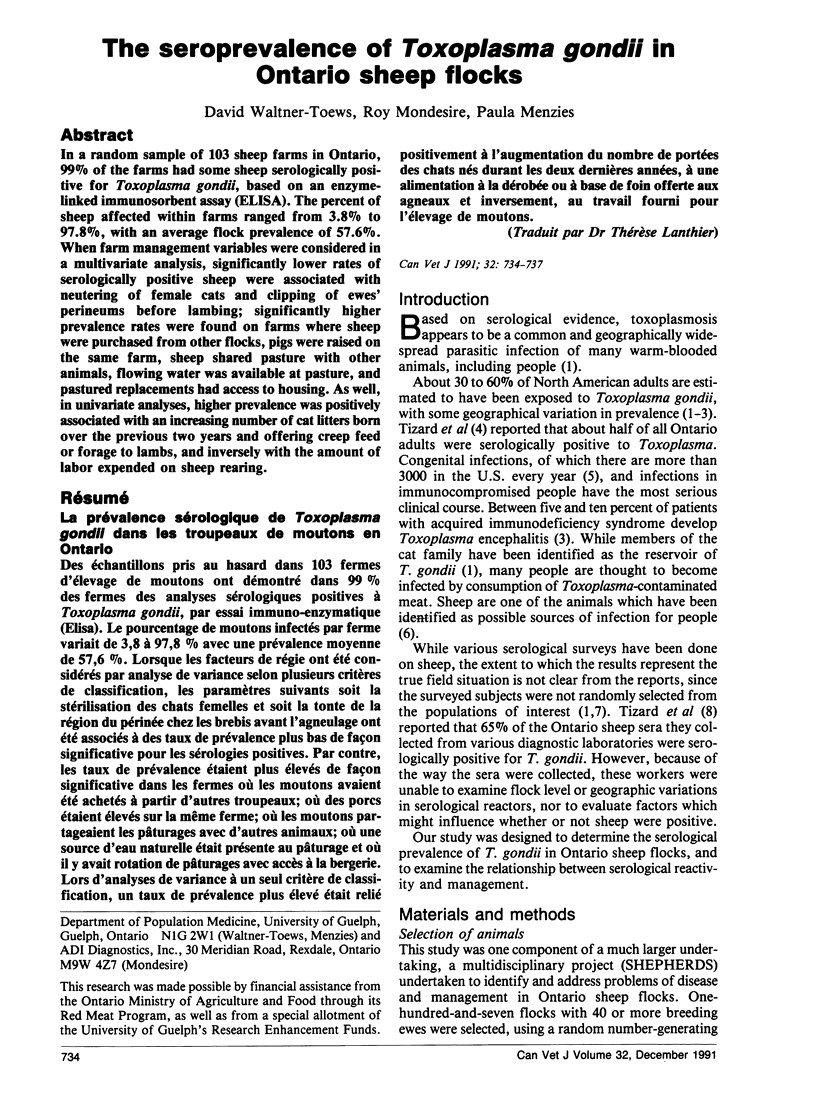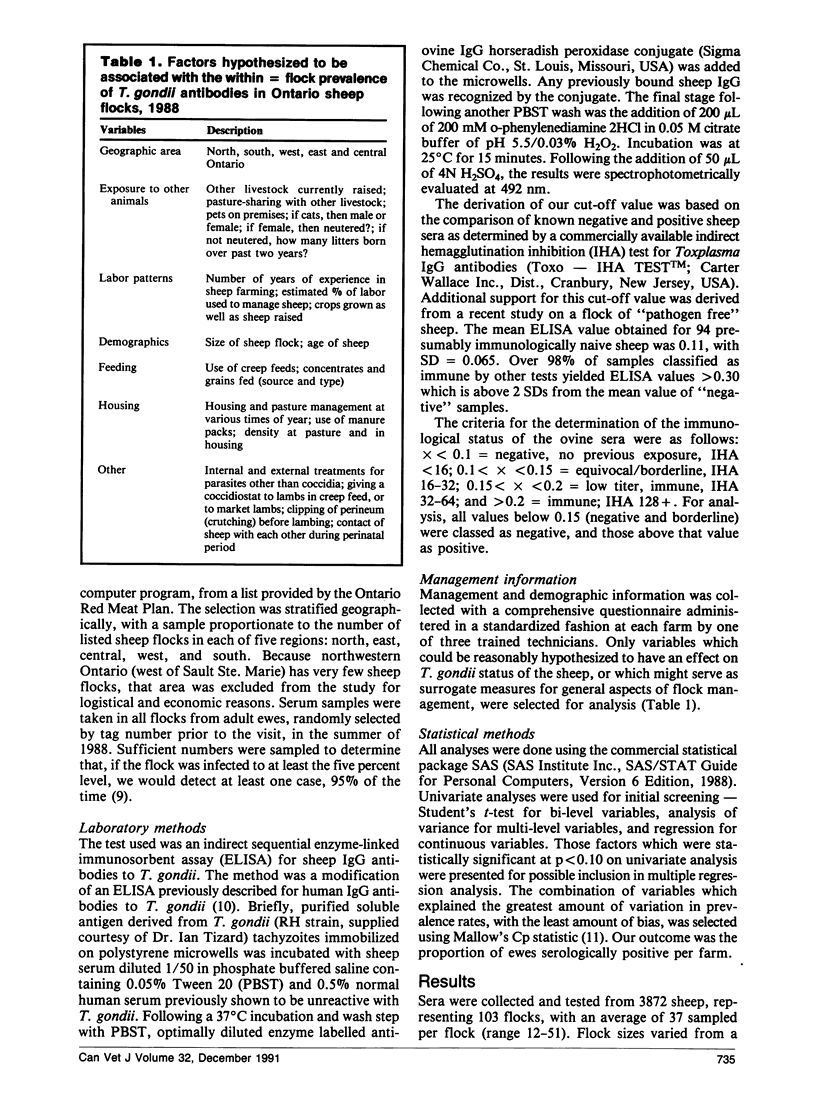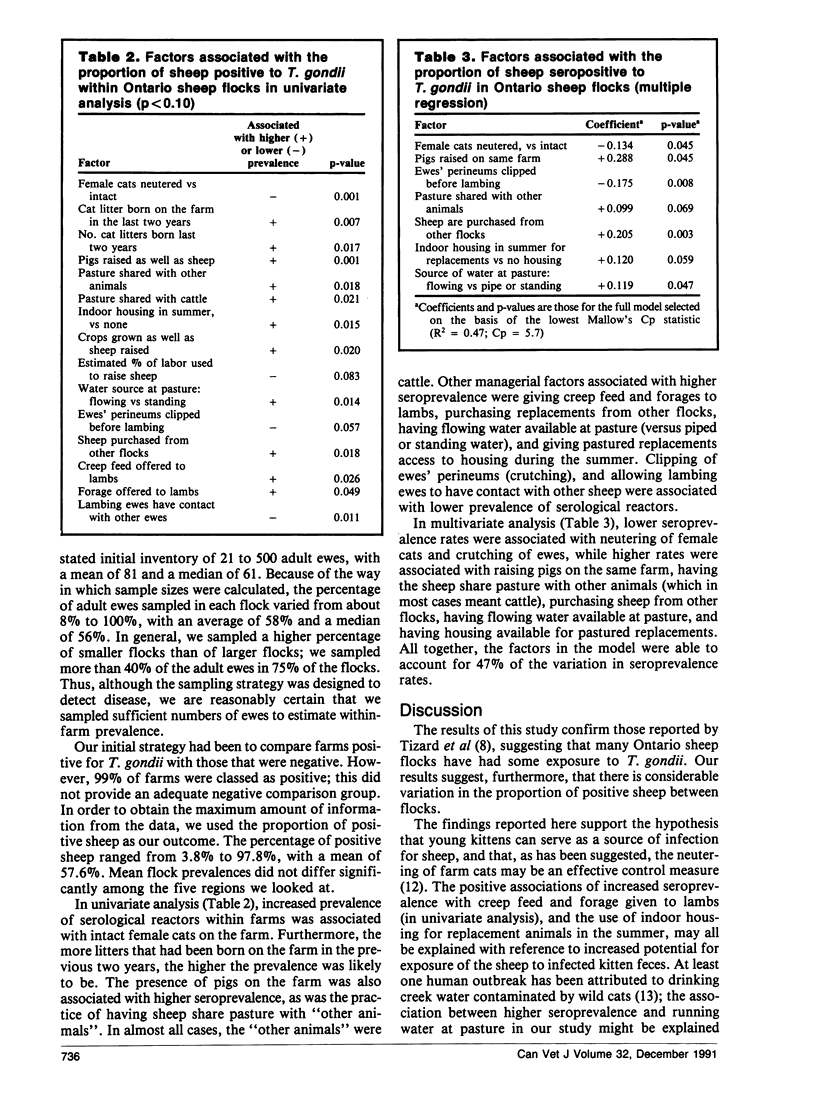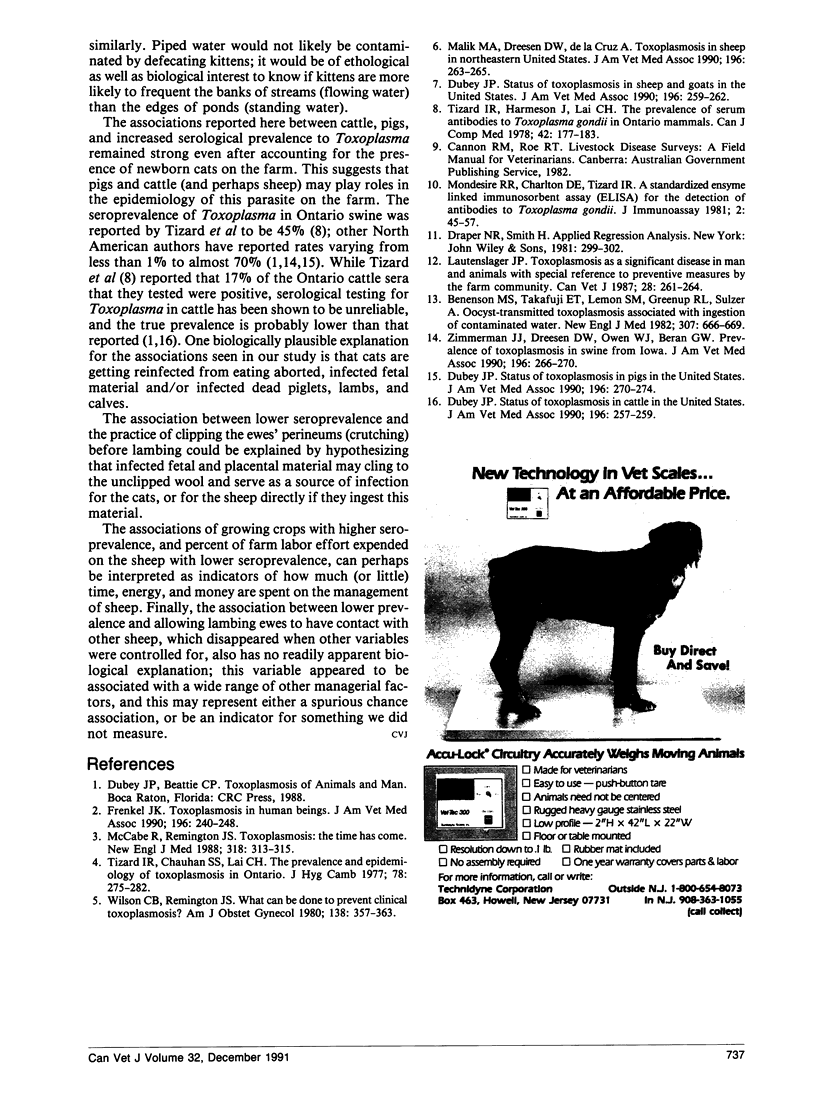Abstract
In a random sample of 103 sheep farms in Ontario, 99% of the farms had some sheep serologically positive for Toxoplasma gondii, based on an enzymelinked immunosorbent assay (ELISA). The percent of sheep affected within farms ranged from 3.8% to 97.8%, with an average flock prevalence of 57.6%. When farm management variables were considered in a multivariate analysis, significantly lower rates of serologically positive sheep were associated with neutering of female cats and clipping of ewes' perineums before lambing; significantly higher prevalence rates were found on farms where sheep were purchased from other flocks, pigs were raised on the same farm, sheep shared pasture with other animals, flowing water was available at pasture, and pastured replacements had access to housing. As well, in univariate analyses, higher prevalence was positively associated with an increasing number of cat litters born over the previous two years and offering creep feed or forage to lambs, and inversely with the amount of labor expended on sheep rearing.
Full text
PDF



Selected References
These references are in PubMed. This may not be the complete list of references from this article.
- Benenson M. W., Takafuji E. T., Lemon S. M., Greenup R. L., Sulzer A. J. Oocyst-transmitted toxoplasmosis associated with ingestion of contaminated water. N Engl J Med. 1982 Sep 9;307(11):666–669. doi: 10.1056/NEJM198209093071107. [DOI] [PubMed] [Google Scholar]
- Dubey J. P. Status of toxoplasmosis in cattle in the United States. J Am Vet Med Assoc. 1990 Jan 15;196(2):257–259. [PubMed] [Google Scholar]
- Dubey J. P. Status of toxoplasmosis in pigs in the United States. J Am Vet Med Assoc. 1990 Jan 15;196(2):270–274. [PubMed] [Google Scholar]
- Dubey J. P. Status of toxoplasmosis in sheep and goats in the United States. J Am Vet Med Assoc. 1990 Jan 15;196(2):259–262. [PubMed] [Google Scholar]
- Frenkel J. K. Toxoplasmosis in human beings. J Am Vet Med Assoc. 1990 Jan 15;196(2):240–248. [PubMed] [Google Scholar]
- Lautenslager J. P. Toxoplasmosis as a significant disease in man and animals with special reference to preventive measures by the farm community. Can Vet J. 1987 May;28(5):261–264. [PMC free article] [PubMed] [Google Scholar]
- Malik M. A., Dreesen D. W., de la Cruz A. Toxoplasmosis in sheep in northeastern United States. J Am Vet Med Assoc. 1990 Jan 15;196(2):263–265. [PubMed] [Google Scholar]
- McCabe R., Remington J. S. Toxoplasmosis: the time has come. N Engl J Med. 1988 Feb 4;318(5):313–315. doi: 10.1056/NEJM198802043180509. [DOI] [PubMed] [Google Scholar]
- Mondesire R. R., Charlton D. E., Tizard I. R. A standardized enzyme-linked immunosorbent assay (ELISA) for the detection of antibodies to Toxoplasma gondii. J Immunoassay. 1981;2(1):45–57. doi: 10.1080/01971528108062991. [DOI] [PubMed] [Google Scholar]
- Tizard I. R., Chauhan S. S., Lai C. H. The prevalence and epidemiology of toxoplasmosis in Ontario. J Hyg (Lond) 1977 Apr;78(2):275–282. doi: 10.1017/s0022172400056163. [DOI] [PMC free article] [PubMed] [Google Scholar]
- Tizard I. R., Harmeson J., Lai C. H. The prevalence of serum antibodies to Toxoplasma gondii in Ontario mammals. Can J Comp Med. 1978 Apr;42(2):177–183. [PMC free article] [PubMed] [Google Scholar]
- Wilson C. B., Remington J. S. What can be done to prevent congenital toxoplasmosis? Am J Obstet Gynecol. 1980 Oct 15;138(4):357–363. doi: 10.1016/0002-9378(80)90129-5. [DOI] [PubMed] [Google Scholar]
- Zimmerman J. J., Dreesen D. W., Owen W. J., Beran G. W. Prevalence of toxoplasmosis in swine from Iowa. J Am Vet Med Assoc. 1990 Jan 15;196(2):266–270. [PubMed] [Google Scholar]


